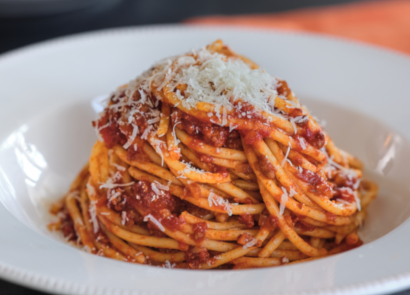Cut through the #highlightsreel and create a better relationship with yourself with comparison coach Lucy Sheridan
While comparison certainly isn’t anything new (it turns out most of our parents had a worrying preoccupation with the neighbour’s garden), with the rise of social media, it’s gotten a hell of a lot harder to deal with than it was before the era of likes and followers. As it’s part of our natural human impulse to stoke out the competition, trying to ‘wellness hack’ or ‘cure’ comparison won’t work, so rather than shutting it down, or, in extreme cases, deleting all social accounts and becoming a recluse, making an effort to understand its origins and mechanisms can help us cope when it strikes. To find out exactly what comparison is and how we can approach it, we turned to comparison coach, Lucy Sheridan, the first of her kind (and only) (proofcoaching.com), who works with clients on how they can stop comparing themselves.
An age-old problem
While social comparison has been around since the dawn of time, it was only introduced as a theory in 1954, by psychologist Leon Festinger. Festinger theorises that we feel comparison because there’s drive within all of us to self-evaluate, which is part of a wider evolutionary need to protect and assess threats (Human Relations: The first 10 years, 1947–1956). The rather icky feeling that bubbles up inside us often relates to the areas of life we hold the most value in, such as appearance, relationships, wealth, career, or goals. “When it comes to the real root of comparison, ultimately, it comes down to not feeling connected with ourselves,” says Lucy. “Not feeling confident in our views and not being clear in our goals, means that when those things aren’t in place, you don’t have the anchoring to tear yourself away from those negative thoughts.” However, ‘staying in your lane’ and being ‘your own competition’, is sometimes easier said than done.
“You may not be able to shut comparison out altogether, but it does dissolve away if you work at it, and once you have, that can make life feel completely different.”
Tune in to gratitude
When we compare ourselves we tend to look at what others have, rather than reflect on all the tiny moments of happiness we’ve felt during the course of the day. Our sense of self only takes a dip if we don’t value the postives, so developing a deeper sense of gratitude for what we have can help reinforce our own self-worth. “Gratitude is a real remedy for comparison,” says Lucy. “It’s almost impossible to stay fixated on the things that someone else has when you make time for daily appreciation. It’s often the most simplest of things that can make us happy, like your dog, or the amazing plate of pasta that you had at a restaurant last night, no matter how seemingly little it may be, there’s always something to be grateful for. Daily gratitude tunes us into the good radio, whereas comparison tunes into the bad radio, and turning on the good radio daily, allows us to feel more uplifted, positive and happy.” A real antidote to comparison can be keeping a gratitude journal, where we write down the daily things that we’re grateful for.
Navigating sibling rivalry
Keep your friends closer and your comparison targets even closer. Research shows that those we most closely identify with, as well as those within our personal orbit, tend to be the people that trigger our comparison barometer. “Comparison in family groups can be particularly vicious,” says Lucy. “We are, from a young age, taught to compare ourselves at school. We’re judged on whether or not our progress matches that of the rest of our peer group, in terms of spelling, maths and reading abilites. Sibling and family comparison is one of the hardest forms of comparison to deal with, because you can’t really escape from it. Instead, think about the mindspace you’d like to be in. Do you need to ask for help? What’s the next step? Therapy can be a really beneficial remedy for issues like these, so don’t rule out that outside support.” Develop a thicker skin when it comes to sibling rilvary, and favourite child syndrome will feel less hurtful. Think about what you do get from your family relationships. Start by noticing the little postives and your sense of self will improve.
Good for you!
When those feelings of inadequacy are stirred up, there are some obvious ways to quell them – time away from social media is the comparsion equivilent of taking pain relief for a migrane. “It might seem like ‘oh, am I the only person not in the South of France right now?’ But rather than try and force the feelings away, let yourself feel it,” says Lucy. “When the fog clears, think about what this comparison is telling you about your life. Consider what’s causing you to have those negative thoughts right now. Comparison is primal and ingrained, so rather than pretending it’s not happening, let yourself feel it. All that will happen is that the adrenaline will do what it needs to do. Once you’ve thought about what caused the trigger, end the cycle by thinking ‘good for you, and the same for me’. Our psyche overrides with the positive, so keep those good thoughts flowing.”
Are you the trigger?
If you’ve got a big event approaching, or something positive in your life has happened and you want to shout about it, then it can come as a bit of a shock, and hard to hear, that a friend, or a family member finds your life stirs up feelings of inadequacy in theirs. “Each of us is someone else’s comparison trigger,” says Lucy. “What you don’t have to do, is apologise for that. Sometimes someone’s life might look perfect from the outside, everyone has a different journey from us. Say thank you, and then get out of that situation. You don’t owe anyone a justification about how you got there and your journey to getting to that happy place.”




















